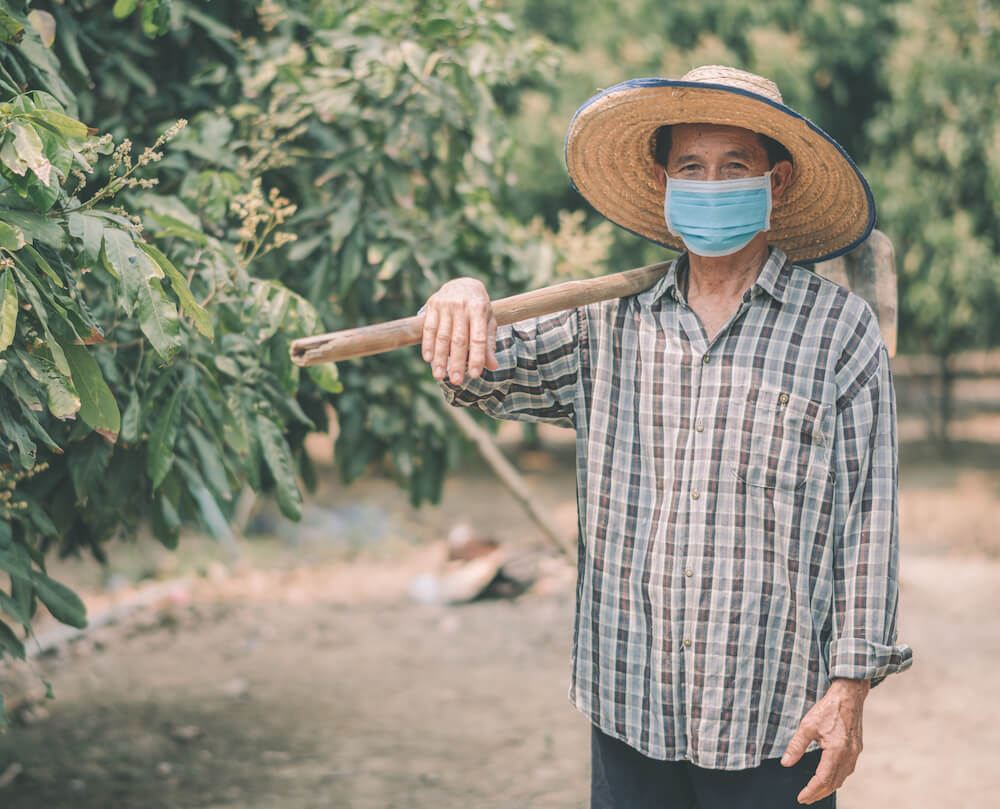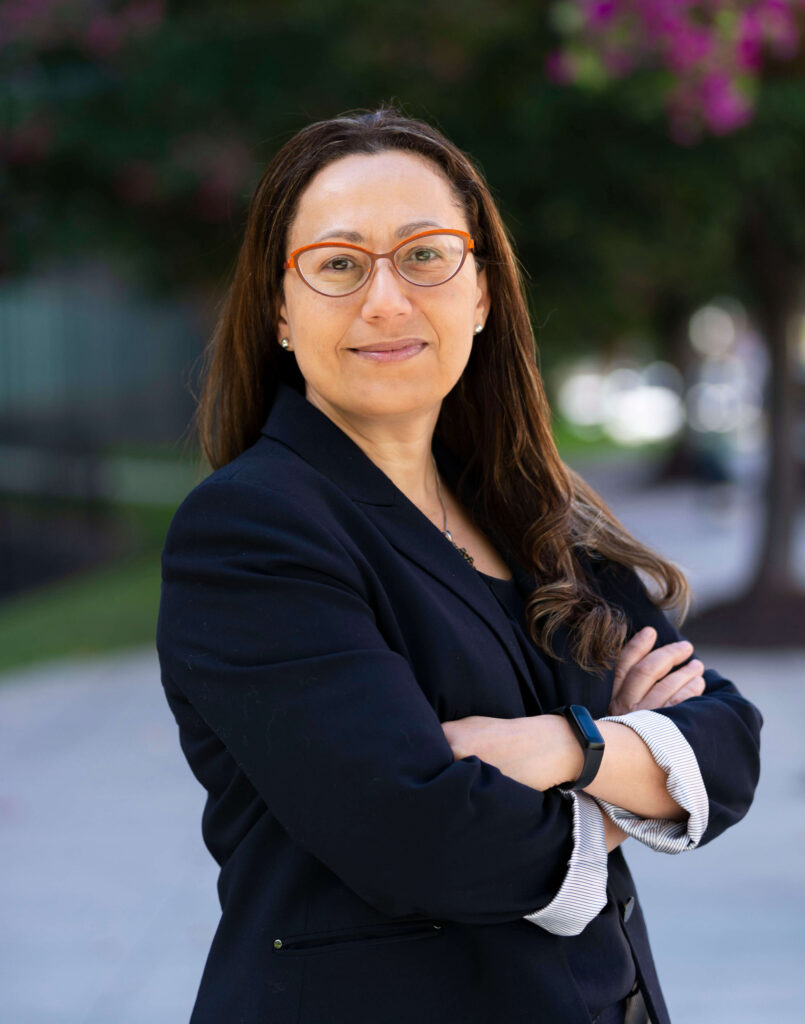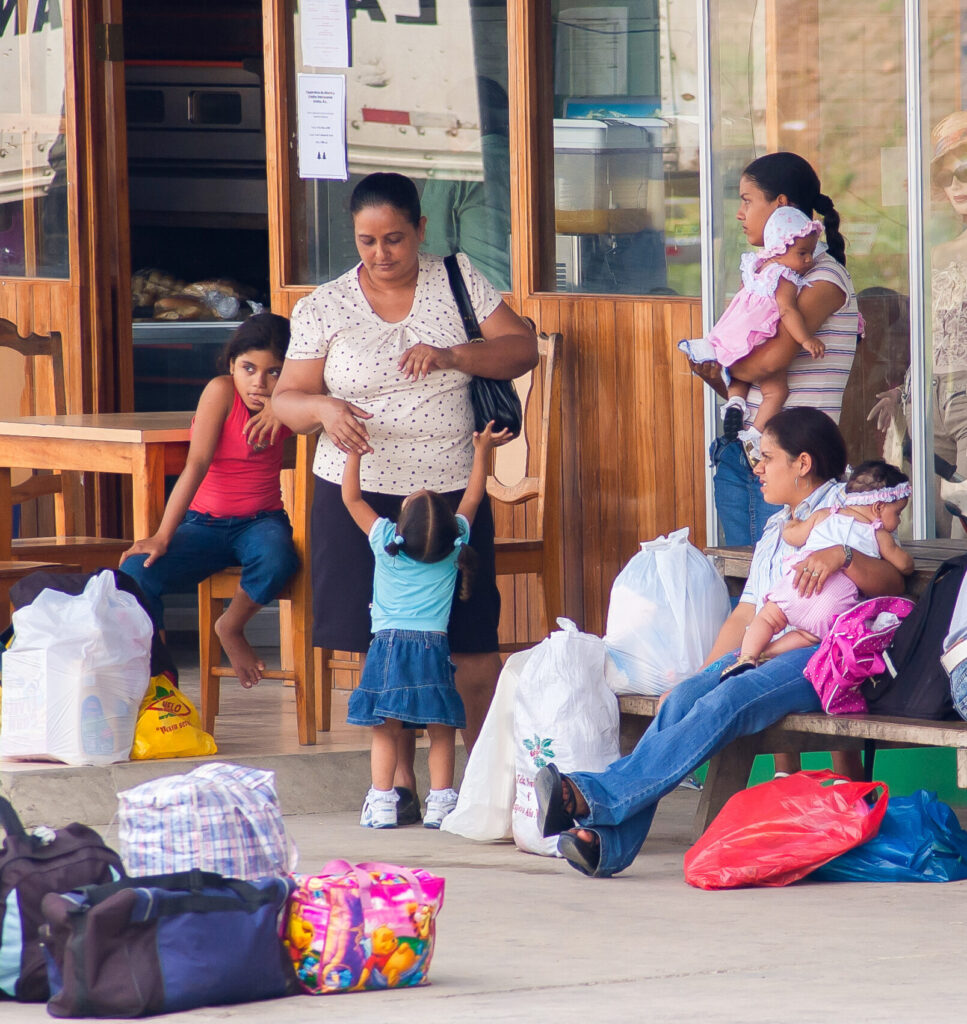
The coronavirus pandemic has continued to ravage Western countries and is encroaching in a much more aggressive way into developing economies in Latin America, Africa, the Middle East and Asia. In developing countries where the vast majority of the labor force is in the informal economy (estimated at over 60 percent worldwide), COVID-19 is revealing the limits of individual financial behaviors for coping with the pandemic. This raises questions: Which public policy measures should be prioritized to support resilience? What are the economic policies that are creating the underlying vulnerability and marginalization in the first place?
Which public policy measures should be prioritized to support resilience? What economic policies are creating underlying vulnerability and marginalization?
COVID-19 is revealing that no matter the degree of someone’s financial cushion in the form of savings or remittance networks, it is simply not sufficient to cover a loss of income. From a research perspective, no matter how much information we obtain on someone’s behaviors, attitudes and circumstances, we will not be able to have visibility into their vulnerability to shocks, as these issues only marginally contribute to someone’s resilience. To be better equipped to understand the impact of shocks such as COVID-19 on the lives of the BOP, we need to understand critical variables such as income, wealth and safety nets available to them. This means we need to adapt the financial health measurement tools that were previously developed to serve the narrower purpose of helping providers understand the financial health of their customers. These frameworks were tailored to the information that providers needed to know and the tools available to them to improve the resilience of their customers. Broader contextual variables, like safety nets, let alone income variables, were not part of the equation as FSPs do not have the mandate to address these larger policy issues.
Need to Ask Bigger Questions
But for many of us working in the inclusive finance space, our toolbox is bigger. Advocacy on public policy is squarely within our mandate and having the right information to inform this advocacy work should be integral to the types of research work we undertake. Demand-side research such as the Findex, Finscope, financial diaries, and the new crop of financial health surveys, all reveal a similar story. They tell us that being poor is bad and poverty limits people’s resilience to shocks. These demand-side tools don’t tell us much about the underlying causes of this lack of resilience. So, narrowing our research efforts only to demand-side data can be misleading. Too often actors draw the wrong inference from it: that people’s behaviors and attitudes are the reason for their poverty or vulnerability, even though this has long been discredited. Focusing only on what providers can do is also too narrow in scope: the ideology that markets can solve all problems has also been pronounced dead by many economists, including the Nobel Laureate Joseph Stiglitz.
The economic fallout of this pandemic can’t be solved through any individual choices or actions or a ready-made market solution.
The economic fallout of this pandemic can’t be solved through any individual choices or actions or a ready-made market solution. We need to ask bigger questions around why people are vulnerable to economic shocks in the first place and the role of the financial system in addressing this vulnerability. How are public policy, social safety nets, systemic discrimination or other underlying issues influencing people’s financial health circumstances? What would make people resilient and how should the financial system be set up to improve resilience and well-being for the BOP? There is really no amount of planning and sound financial management that would be sufficient under these circumstances. For systemic shocks like COVID-19, we need other research tools and a different body of evidence.
Creating Financial Protections for the BOP
We should be thinking about the systems that undergird the financial system and how to use it to create financial protections for the BOP. There are at least three priorities that COVID-19 has revealed for the inclusive finance field. I argue that these should be elevated in our collective research and evidence-gathering agendas.
1. Strengthening the ability to distribute payments
If nothing else, this pandemic has made it clear that countries with robust digital payment infrastructures can quickly get money out to people who are most in need. It is heartening that countries like Togo are taking action to get money into people’s hands using digital payments. Pakistan’s Ehsaas Emergency Cash Transfer Program is able to disburse to over 12 million families hardest hit by COVID-19. Jordan has taken impressive steps to expedite reforming electronic customer due diligence, expanding the cash in cash out (CICO) networks and other reforms to use a digital channel to disburse aid. These cash transfers are not only a critical lifeline for those most impacted by COVID-19, they also serve as a demonstration of the importance of the financial system for crisis response and for economic recovery. The challenge will be for those countries that do not yet have robust digital infrastructures or where there are still many limitations to getting certain groups — like women or the elderly — to engage with these digital channels. The inclusive finance community should focus its problem-solving skills on answering:
- What will it take to extend digital infrastructure quickly? How can donors and investors partner with policymakers to make this a priority?
- What are quickly scalable, second-best solutions for cash distribution in markets without digital infrastructure? Can MFIs, postal networks, and other community groups serve this last mile distribution?
2. Improving financial protection through “safety net-like” insurance
Prior to COVID-19, the role of insurance in the inclusive finance field was perceived as good to have or a problem of the health sector, but not the primary focus of our field. The challenge of commercializing micro-insurance was the main obstacle limiting progress. COVID-19 reveals the clear inadequacy of our solution set to date. The concept of employer-backed private insurance in situations where millions of employees are losing their jobs (an estimated 3.5 million in the US alone) is fundamentally flawed; and this has always been the case in developing countries where the vast majority of the BOP has never had a formal employer in the first place, let alone employee-backed private insurance. We must start to see universal health insurance as part of the solution set for inclusive finance. And beyond health insurance, we should be looking for public-private solutions for other types of protections like unemployment insurance or disaster insurance. The inclusive finance community should be focusing on answering:
- What are the private-public models that can be deployed to scale micro-insurance?
- What are other ways we can reimagine safety nets to leverage private-sector insurers and balance the costs for policymakers and employers?
3. Linking food producers to the financial system
In La Republica (in Spanish), Carolina Trivelli sounds the alarm bells on food security in Peru. Immediate demand reductions on one side of the value chain are having longer term effects on small producers who are at risk of not getting the seeds, fertilizer and other inputs they need to plant for the next season. A different but also compelling call to action comes from Maha Agriculture Public Co., Ltd., in Myanmar. In an effort to limit the spread of the virus, government policy is inadvertently shutting down the financial services providers who are financing critical food production cycles. Maintaining the flow of capital to farmers, regardless of the pandemic, is paramount for all of us if we want to see food at the grocery store in six months and not allow the effects of the pandemic to include food shortages and starvation. The questions that are priority for our collective attention include:
- How can we ensure that money is flowing to food producers? How can we expand work on value chain finance in critical food commodity value chains? Is there specific data that can increase investment to value chain finance? Are there important actors, like buyers or distributors, with whom our community needs to engage?
- What would it take to support the FSPs that serve agricultural producers? How can we ensure the business continuity of agricultural cooperatives or other financial service providers that serve the agricultural sector?
The complexity and gravity of the impact of COVID-19 are demanding that we not only respond immediately, but also reflect deeply on what we prioritize as a community in the future. Do you agree with the ideas put forward here? Let us know what you think.










